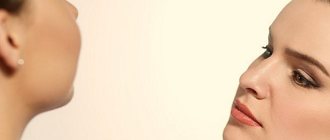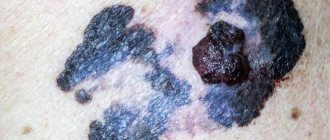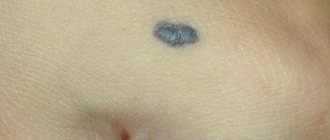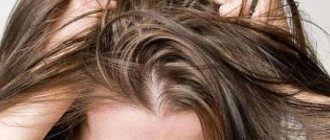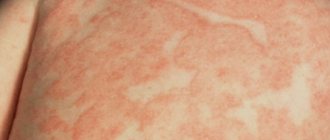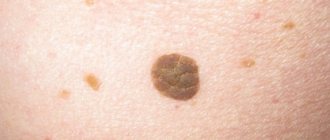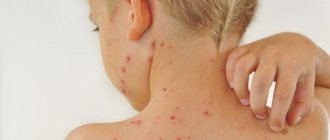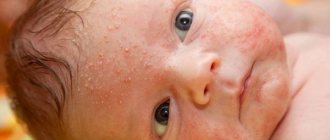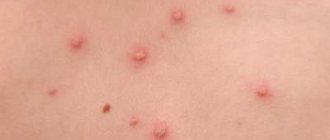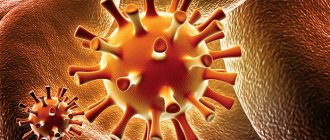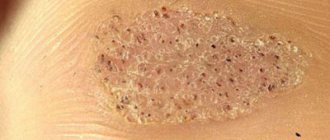Active interaction with society exposes a person to various shocks and tense situations. The central nervous system transmits impulses to other systems.
It is common to experience coughing, sneezing, and head spasms at the time of worry or after worry. However, most often it manifests itself as rashes all over the body. This confirms that the appearance of rashes is not only caused by the presence of allergens and thus answers the question of whether urticaria can be caused by stress.
Causes of urticaria
Due to excessive stimulation of the central nervous system, nerve conduction is disrupted, which causes skin itching due to an increase in the concentration of histamine in the body. Also, with such disorders, the content of serotonin increases, leading to the expansion of blood vessels and an increase in the permeability of their walls.
The description of the processes caused by a stressful situation does not give a clear answer as to whether urticaria can occur due to nervousness. Urticaria appear due to the fact that the skin is directly connected to the autonomic and central parts of the central nervous system. Therefore, red spots may appear on the surface of the body, which appear due to an abnormal reaction of the body in response to exposure to an irritant (stress).
Nervous urticaria occurs relatively rarely. Even exposure to severe stress does not always provoke its development.
Symptoms are caused by:
- physical and moral exhaustion;
- prolonged depression;
- mental disorders;
- chronic stress;
- character traits (for example, increased excitability).
What is noteworthy about the phenomenon under consideration is that nervous allergies arise as a result of both positive and negative emotions. This is explained by increased stress on the nervous system.
The following can provoke another attack of urticaria:
- pathologies of the digestive and genitourinary systems;
- cardiovascular diseases;
- endocrine disorders.
More often, itching and rashes are diagnosed in women due to their increased emotional lability. Nervous urticaria in children is usually caused by the formation of the central nervous system in the first years of life. Therefore, even mild stress and anxiety can cause urticaria in a child.
Characteristic symptoms
With nervous urticaria, symptoms appear in the form of red papules or blisters, the formation of which is accompanied by itching of varying degrees of intensity. Also, the clinical picture may be supplemented by the following signs of a nervous disorder:
- joint pain;
- increased body temperature;
- general weakness;
- decreased or complete lack of appetite;
- headache;
- attacks of dizziness and nausea;
- dyspnea;
- feeling of tightness in the chest area;
- feeling of anxiety.
Localization of spots is noted on different parts of the body. More often, red tumors form on the face, back, and chest. Possible damage to the limbs and mucous membranes. On average, urticaria caused by nervous tension lasts for 5-7 days. After this, the manifestation of general symptoms weakens, and pigment spots or scars do not remain on the body.
Nervous urticaria is more severe in children. This is due to the failure of the central nervous system, which is not able to respond normally to external stimuli. Therefore, in children, the clinical picture is often supplemented by angioedema, which causes difficulty breathing. If asthma attacks occur, medical intervention will be required, without which death is possible.
Prolonged manifestation of allergy symptoms indicates other disorders not related to the functioning of the nervous system.
Diagnosis
It is recommended to seek medical help immediately after itching and skin rashes occur. Urticaria occurs against the background of various pathologies, including food poisoning. Therefore, it is important to establish the provoking factor and only then begin treatment.
Diagnosis of the disease is carried out through an external examination of the skin. At this stage, it is often possible to differentiate nervous urticaria from other dermatoses.
During the initial examination of the patient, the doctor collects information about recent contact with possible irritants. To narrow down the search for the triggering factor, allergy tests are performed. Additionally assigned:
- general and biochemical blood tests;
- general analysis of urine and feces;
- ECG;
- Ultrasound of the heart;
- liver tests and other tests to exclude helminthic infestation and infectious diseases.
If necessary, a biopsy is performed and other tests are prescribed to rule out autoimmune, endocrine pathologies, and metabolic disorders. If neurological urticaria is suspected, the patient is sent for consultation to a psychotherapist.
Nervous urticaria
Urticaria is characterized by the appearance of peculiar blisters on the dermis, similar to stings or a nettle burn. Blisters can be localized on any area of the body, and they can change their location over time. At first they may appear on the hands, and the next day it is possible that symptoms of urticaria may appear on the back or stomach, etc.
If urticaria has developed specifically because of nervousness, then a person, in addition to spots and rashes on the surface of the epidermis, may experience the following symptoms:
- difficulty breathing;
- pressure in the heart area;
- anxiety and nervousness;
- decreased appetite;
- trembling in the arms and legs.
A rash with urticaria is usually accompanied by intense itching, as well as swelling of the mucous membranes. The blisters can be very large and merge with each other, affecting larger areas of the epidermis.
The causes of nervous urticaria are considered to be disruptions in the digestive and reproductive systems, diseases of the nervous system, mental disorders, as well as problems with the heart and blood vessels.
If the above symptoms occur, consultation with a specialist is required to establish the most accurate diagnosis and prescribe appropriate treatment. Consultation is necessary not only with a dermatologist, but also with a neurologist, taking into account the causes of urticaria.
Diagnosis of urticaria in this case includes the following measures:
- general blood analysis;
- urine and stool tests;
- analysis to identify allergens;
- ECG;
- study of the state of immunity;
- brain research, etc.
Treatment of urticaria due to nervousness should be comprehensive. It is necessary to eliminate the cause of its occurrence, namely, reduce the activity of the nervous system, eliminate the tendency to irritability and anger, fear and anxiety. You can make an appointment with a psychotherapist or psychologist for training.
READ ALSO: Skin itching all over the body without rashes and redness: causes and treatment
A change of scenery, spa treatment, or just a trip to another city is useful. It is important to try to avoid stressful situations for treatment to be most effective.
Doctors often prescribe antihistamines to relieve symptoms of nervous urticaria, such as Tavegil, Cetrin, Suprastin, Zodak, Fenkarol, Zyrtec, Diazolin and others. To relieve the symptoms of itching, the old proven drug Diphenhydramine is used. But for relapses of urticaria, hormonal medications are used.
Treatment of nervous urticaria will be more effective if, simultaneously with drugs for oral administration, ointments for topical application are used:
- Flucinar;
- Fluorocort;
- Lorinden S
- Betnovat;
- Lokoid;
- Elokom et al.
You cannot make your own decision about choosing one drug or another for the treatment of neurogenic urticaria, since this is fraught with serious complications for your own health.
Among the traditional methods of treatment, there is an infusion of wormwood, which must be taken orally in small doses.
To calm your nerves, you can drink an infusion of motherwort, knotweed, mint or chamomile, or simply eat a cube of dark chocolate. It is equally important to follow a special therapeutic diet, which involves excluding from the diet those foods that can cause allergic rashes on the skin, such as with urticaria.
As a preventative measure, you need to learn to control yourself during stressful or conflict situations, especially if you have a tendency to develop urticaria due to nervousness. It is better to take valerian or another sedative in time.
Methods and means of therapy
The doctor determines how to treat urticaria caused by nervous strain based on the results of tests, tests, and anamnesis. Often this pathological condition goes away on its own, after restoration of the central nervous system. During the rehabilitation period, the patient is recommended to limit the impact of stressful situations as much as possible and switch to a diet that excludes allergens (citrus fruits, tomatoes and other foods).
In severe cases, treatment is supplemented with psychotherapy sessions and medications.
Treatment with drugs
Since urticaria from nerves causes an increase in the concentration of histamine in the blood, treatment of such a reaction in the body is carried out using anti-allergy drugs. More often, topical antihistamines are used in the form of ointments and gels. But in difficult cases, second or third generation tablet medications are recommended, which have a complex effect on the body and reduce the likelihood of a recurrence of the reaction.
When treating nervous urticaria, anti-itch medications are used:
- "Gistan";
- "Fenistil-gel";
- "Skin-up";
- "Nezulin."
To suppress the inflammatory process and, as a result, get rid of red spots, it is recommended to treat the skin in the problem area with non-hormonal ointments and creams. In complicated cases, general therapy is supplemented with corticosteroids. Drugs in this group are also prescribed in the form of ointments and tablets. The doctor selects the type of corticosteroids and dosage of medications taking into account the course of the disease, since these drugs have side effects.
In extremely severe cases, drug therapy is supplemented with immunosuppressants. In addition, the use of herbal-based sedatives and antipsychotics is indicated.
Psychotherapy
The basis for the treatment of urticaria due to nerves is psychotherapeutic techniques. This approach allows us to identify the true causes of urticaria and select the optimal way to eliminate the influence of the provoking factor. The treatment method is selected taking into account the specific case. If necessary, psychotherapeutic intervention is combined with hypnosis sessions and psychotropic medications.
Help with folk remedies
If symptoms of urticaria from nerves occur, treatment can be supplemented with:
- Infusion of knotweed. To prepare the medicinal composition you will need 20 g of the main component and 250 ml of water. The mixture is infused for two hours, and then taken three times a day, a tablespoon.
- Infusion of wormwood. 1 tsp plants are mixed with 500 ml of water, infused for 2 hours. The product is taken twice a day, one tablespoon at a time.
- Motherwort. You will need 15 g of herb and a glass of hot water. The mixture is infused for 40 minutes, consumed 5 times a day, a tablespoon.
Taking baths with the addition of wild rosemary infusion has a calming effect on the nervous system. In order to prevent another exacerbation of nervous urticaria, it is recommended to regularly eat chocolate.
Prevention recommendations
To avoid another exacerbation of psychogenic urticaria, it is necessary to limit the influence of stressful situations. To do this, you need to avoid conflicts and take herbal-based sedatives.
Daily walks in the fresh air and regular physical activity strengthen the nervous system and reduce the likelihood of allergies.
Self-hypnosis sessions or meditation sessions are also recommended to prevent relapses. It is necessary to treat diseases that provoke the development of an allergic reaction and comply with the requirements to prevent the exacerbation of such pathologies. In addition, you need to give up smoking and other bad habits, as well as normalize your sleep and wakefulness patterns.
Nervous allergies
It is generally accepted that allergic reactions in humans can only occur due to exposure to any chemicals, food, dust, wool, etc. But not everyone knows that allergies often arise as a result of frequent stress, prolonged depression, conflict situations, etc.
READ ALSO: Lipoma: how to get rid of it without surgery: treatment with different methods
Under the influence of excessive emotional stress, many mediators begin to be released in the body, which provoke the development of inflammatory processes in the body. And it doesn’t matter what kind of products the patient consumed, an allergic reaction will occur in any case.
Reasons why nervous allergies occur:
- low stress resistance;
- tendency to depression;
- hereditary predisposition;
- weakening of the immune system for various reasons.
Nervous allergies most often affect women and children, as men are more reserved and less emotional.
Symptoms of allergies due to nerves:
- rashes on the limbs, head, neck and chest;
- the affected areas of the skin may itch;
- a runny nose and cough appear, but there are no other symptoms of colds;
- difficulty breathing;
- sneezing;
- lacrimation;
- tachycardia.
If a person’s neurogenic allergy takes a chronic form, then under the influence of stressful situations and other provoking factors the patient may experience such serious health problems as:
- headache and dizziness;
- weakness and fatigue;
- temporary blurred vision;
- increased drowsiness.
Doctors call such conditions an allergic vegetative storm, which can last for years. All of the above symptoms occur at a time of emotional overstrain. When calm sets in, these signs disappear without a trace.
It is very difficult for doctors to identify nervous allergies due to the strong similarity of symptoms with other diseases. For diagnosis, skin tests are taken to identify allergens, and the level of immunoglobulin is determined, which gives normal values in case of nervous allergies.
As with other nervous diseases, in this situation all efforts must be directed towards preventing stress in the patient and calming the nervous system. To do this, you can use the services of a psychotherapist, physiotherapy, and taking natural sedatives, vitamin substances, and allergy medications is also useful. To avoid aggravating skin reactions, it is better to avoid using body cosmetics.
Itching and inflammation on the skin are well relieved by water with the addition of vinegar, soda solution, and tomato juice. It is necessary to give up bad habits, try to lead a healthy lifestyle, spend more time in the fresh air and take walks. Such measures not only strengthen the immune system, but also have a beneficial effect on the nervous system.
Consequences
Nervous urticaria rarely causes complications. Common negative consequences of the body's reaction include inflammation of the skin caused by a secondary infection due to scratching, and scarring, which occurs for the same reason.
Among the dangerous complications of urticaria is Quincke's edema, which provokes anaphylactic shock. The lumen of the larynx narrows, and the volume of incoming air sharply decreases. If glucocorticosteroids are not administered within a few minutes or hours (depending on the severity of the case), the patient will die from suffocation.
Nervous psoriasis
Psoriasis is a non-contagious dermatological disease that occurs for various reasons, including nerves. It is also called lichen planus.
Doctors have established a connection between a person’s negative emotional state and the development of psoriasis.
- the appearance of typical psoriatic plaques with white scales on various parts of the skin of the body;
- the rash is accompanied by severe itching;
- anxious nervous state of the patient.
Nervous spots in the photo
During negative emotional outbursts, the immune system malfunctions, resulting in a disruption of metabolic processes in the dermis. It is for this reason that psoriasis plaques form on the skin.
This dermatological disease can affect the scalp, resulting in severe itching of the scalp and the formation of a rash. But if a person does not have a tendency to develop this body reaction to stress, then under any unfavorable conditions or conflict situations, symptoms of psoriasis will not arise.
Treatment of nervous psoriasis, as well as other diseases caused by frequent stress, should be comprehensive and include several main areas. The therapy process is quite complex and lengthy and, above all, requires emotional self-control.
READ ALSO: 10 types of wen (lipomas) - soft, subcutaneous, inflamed, falx
It is advisable to prescribe the following sedatives:
- valerian;
- Sedavit;
- Magne B6;
- Fitosed et al.
To treat skin lesions, salicylic alcohol, birch tar, ointments with sulfur and zinc, and some essential oils are used. Some patients are prescribed autohemotherapy, acupuncture, and physiotherapeutic procedures.
